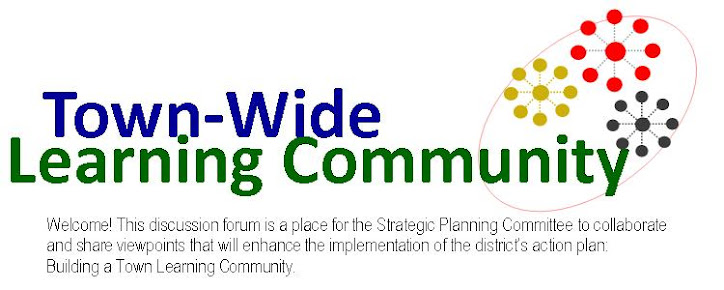I just finished reading a great paper that summarizes lessons learned at a 2007 professional development institute sponsored by the Harvard Family Research Project; "Closing the Achievement Gap: Linking Families and Communities Through Complementary Learning."
"Complementary learning" is explained like this...
Educators, policymakers, and families increasingly agree: schools cannot do it alone. Children need multiple opportunities to learn and grow—at home, in school, and in the community. Complementary learning is a comprehensive strategy for addressing all of these needs and ensuring success for all children and youth. Complementary learning is the idea that a systemic approach—which intentionally integrates both school and nonschool supports—can better ensure that all children have the skills they need to succeed
Sounds familiar, doesn't it!
Well, I was also struck by the conclusion of the paper...
Regardless of terminology, the institute presenters and participants tackling these challenges are part of a growing national momentum for educating children in a more connected, comprehensive, and equitable way. As we all continue to innovate and build knowledge, we look forward to learning from them, sharing their knowledge, and helping to facilitate the national dialogue about educating children from a holistic, whole-community perspective.
The entire paper can be found at the following link. I would welcome your thoughts.
http://www.hfrp.org/complementary-learning/publications-resources/complementary-learning-emerging-strategies-evolving-ideas
Subscribe to:
Post Comments (Atom)

2 comments:
Figures, I went to read through the link and their website is unavailable - I'll try again tomorrow!
Hopefully the link is repaired but I did print down a copy earlier this week. I will bring it with me on Tuesday.
I really liked this article too. I also think that the policy climate is right for this type of effort. It's encouraging that Arne Duncan supports the development of community schools.
The section on leadership and conclusions on shared leadership support the approach we have discussed with potential members on "the list." Also the section on leveraging resources support discussions we've had about building a shared common mission. After reading the family engagement piece I thought it might be helpful to know some successful family engagment practices across Cumberland schools to build predictabiltuy and common practices as appropriate.
I have to say that I am not thrilled with the term "complementary learning."
I like our "town wide learning community" much better. I think it is more descriptive and hopefully more meaningful to people here. I know I've blogged about communcation before but I still think it will be important for us to clarify the jargon around these types of endeavors.
Rosemary
Post a Comment